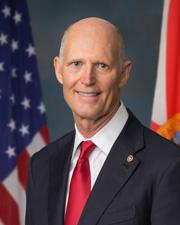0
0
0
A PLUS Act
3/12/2024, 5:00 AM
Summary of Bill S 110
The A PLUS Act, also known as Bill 118 s 110, is a piece of legislation introduced in the US Congress. The purpose of this bill is to give states more flexibility in how they use federal education funding. Specifically, the A PLUS Act would allow states to opt out of certain federal education programs, such as No Child Left Behind, and instead receive a block grant of funding that they can use as they see fit.
Proponents of the A PLUS Act argue that it would give states more control over their education systems and allow them to tailor programs to meet the specific needs of their students. They believe that this flexibility would lead to better outcomes for students and more efficient use of taxpayer dollars.
Opponents of the A PLUS Act are concerned that it could lead to a lack of accountability in education and potentially result in some students being left behind. They worry that without federal oversight, states may not adequately address issues such as student achievement gaps or school accountability. Overall, the A PLUS Act is a controversial piece of legislation that seeks to give states more control over their education systems. Supporters believe it would lead to better outcomes for students, while opponents are concerned about the potential consequences of reduced federal oversight.
Proponents of the A PLUS Act argue that it would give states more control over their education systems and allow them to tailor programs to meet the specific needs of their students. They believe that this flexibility would lead to better outcomes for students and more efficient use of taxpayer dollars.
Opponents of the A PLUS Act are concerned that it could lead to a lack of accountability in education and potentially result in some students being left behind. They worry that without federal oversight, states may not adequately address issues such as student achievement gaps or school accountability. Overall, the A PLUS Act is a controversial piece of legislation that seeks to give states more control over their education systems. Supporters believe it would lead to better outcomes for students, while opponents are concerned about the potential consequences of reduced federal oversight.
Congressional Summary of S 110
Academic Partnerships Lead Us to Success Act or the A PLUS Act
This bill creates a framework under which states may receive federal elementary and secondary education funds on a consolidated basis and use such funds for any educational purpose permitted by state law.
Read the Full Bill
Current Status of Bill S 110
Bill S 110 is currently in the status of Bill Introduced since January 26, 2023. Bill S 110 was introduced during Congress 118 and was introduced to the Senate on January 26, 2023. Bill S 110's most recent activity was Read twice and referred to the Committee on Health, Education, Labor, and Pensions. as of January 26, 2023
Bipartisan Support of Bill S 110
Total Number of Sponsors
1Democrat Sponsors
0Republican Sponsors
1Unaffiliated Sponsors
0Total Number of Cosponsors
24Democrat Cosponsors
0Republican Cosponsors
24Unaffiliated Cosponsors
0Policy Area and Potential Impact of Bill S 110
Primary Policy Focus
EducationPotential Impact Areas
- Academic performance and assessments
- Education of the disadvantaged
- Education programs funding
- Elementary and secondary education
- Government information and archives
- Intergovernmental relations
- State and local finance
Alternate Title(s) of Bill S 110
A PLUS Act
A PLUS Act
Academic Partnerships Lead Us to Success Act
A bill to allow a State to submit a declaration of intent to the Secretary of Education to combine certain funds to improve the academic achievement of students.
Comments
Sponsors and Cosponsors of S 110
Latest Bills
Southern Nevada Economic Development and Conservation Act
Bill S 1005December 10, 2025
ADS for Mental Health Services Act
Bill S 414December 10, 2025
ASCEND Act
Bill S 1437December 10, 2025
Reliable Federal infrastructure Act
Bill HR 4690December 10, 2025
SHOWER Act
Bill HR 4593December 10, 2025
Dismissing the election contest relating to the office of Representative from the Fourteenth Congressional District of Florida.
Bill HRES 312December 10, 2025
Dismissing the election contest relating to the office of Representative from the Thirtieth Congressional District of Texas.
Bill HRES 311December 10, 2025
Dismissing the election contest relating to the office of Representative from the at-large Congressional District of Alaska.
Bill HRES 310December 10, 2025
Dismissing the election contest relating to the office of Representative from the Twenty-eighth Congressional District of Texas.
Bill HRES 309December 10, 2025
Dismissing the election contest relating to the office of Representative from the Fourteenth Congressional District of Florida.
Bill HRES 308December 10, 2025
A PLUS Act
Bill HR 631January 18, 2024
Make Education Local Act of 2023
Bill HR 1185December 15, 2023





